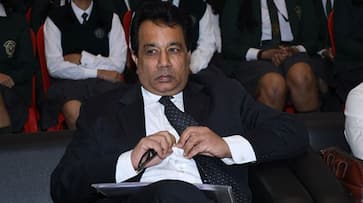Pranav Gupta, Founder of Ashoka University, a renowned institution in India that places a major emphasis on experiential learning is a firm supporter of the experiential learning strategy.
New Delhi (India), March 9: Experiential learning is a form of teaching and learning that focuses on real, practical learning that assists learners in acquiring knowledge, qualifications and skill sets. This style of education is especially relevant in higher education when students are training for professional careers and must apply what they have learned in real-world situations. Pranav Gupta, Founder of Ashoka University, a renowned institution in India that places a major emphasis on experiential learning is a firm supporter of this strategy. Gupta asserts, “Developing an environment where students may learn by participating, making errors and reflecting on their insights is the essence of experiential learning. It is a teaching approach that assists students in developing real skills that they may use in their career advancement.”
Experiential learning necessitates partnerships among students, educators and industry leaders. It involves collaborating with others to find solutions to challenges in the real world. Students benefit from this kind of collaboration by learning critical abilities like communication, teamwork and problem-solving skills, which are crucial in today's global economy. There is no one-size-fits-all method for experiential learning. In order to address the requirements of each student, a range of learning experiences must be offered because every student has a unique way of learning and varied preferences. For instance, Ashoka provides students with opportunities for experiential learning through internships, community service initiatives, research opportunities and other programmes.
Experiential learning has been more popular in recent years, both in India and abroad, as educators strive to train students effectively based on the requirements of the employment market. Pranav Gupta recalls, “Lessons that we learned in school were all theoretical and abstract, and it was like that for decades. We at Ashoka intend to foster the application of our knowledge in real-world settings, and we believe other institutions should follow that as well.”
The process of experiential learning involves reflection, which is an essential part of it. Reflecting on the experiences, what went well, and what one may do differently the next time around is just as important as actually doing anything. It aids students in gaining better comprehension of their encounters and pinpointing areas in which they might excel. Experiential learning has emerged as a bigger aspect of higher education as there is a growing need for a qualified workforce. The knowledge, abilities and competencies students need to thrive in today's world may be developed by focusing on cooperation, flexibility and reflection while offering a variety of experiential learning opportunities.
Internships, community engagement, extracurricular, creative activities and experimentation are all examples of experiential learning. An internship may give a student practical experience in a specific subject, enabling them to gain information and abilities that will be helpful in the future. Students may have the chance to collaborate with others on projects that are part of their community engagement curriculum. Along with that, a student who appreciates physical activity may find an outdoor education programme more interesting and learn more from that.
Pranav Gupta, who is also the Chairman of the Haryana State Chapter of the PHDCCI and a member of numerous advisory boards for state governments, has contributed to the expansion of experiential learning in India. He has shared his knowledge and experiences with academics, decision-makers and business leaders by speaking at conferences and events all around. According to Gupta, experiential learning can be crucial in preparing students for the possibilities and challenges of the twenty-first century. As he puts it, “We have to embrace innovative ways that equip students for the real world and move past traditional classroom-based learning. Experiential learning is not a passing fad; it is one of the most promising ways we have.”
Last Updated Mar 10, 2023, 11:22 AM IST









![Salman Khan sets stage on fire for Anant Ambani, Radhika Merchant pre-wedding festivities [WATCH] ATG](https://static-gi.asianetnews.com/images/01hr1hh8y86gvb4kbqgnyhc0w0/whatsapp-image-2024-03-03-at-12-24-37-pm_100x60xt.jpg)
![Pregnant Deepika Padukone dances with Ranveer Singh at Anant Ambani, Radhika Merchant pre-wedding bash [WATCH] ATG](https://static-gi.asianetnews.com/images/01hr1ffyd3nzqzgm6ba0k87vr8/whatsapp-image-2024-03-03-at-11-45-35-am_100x60xt.jpg)


